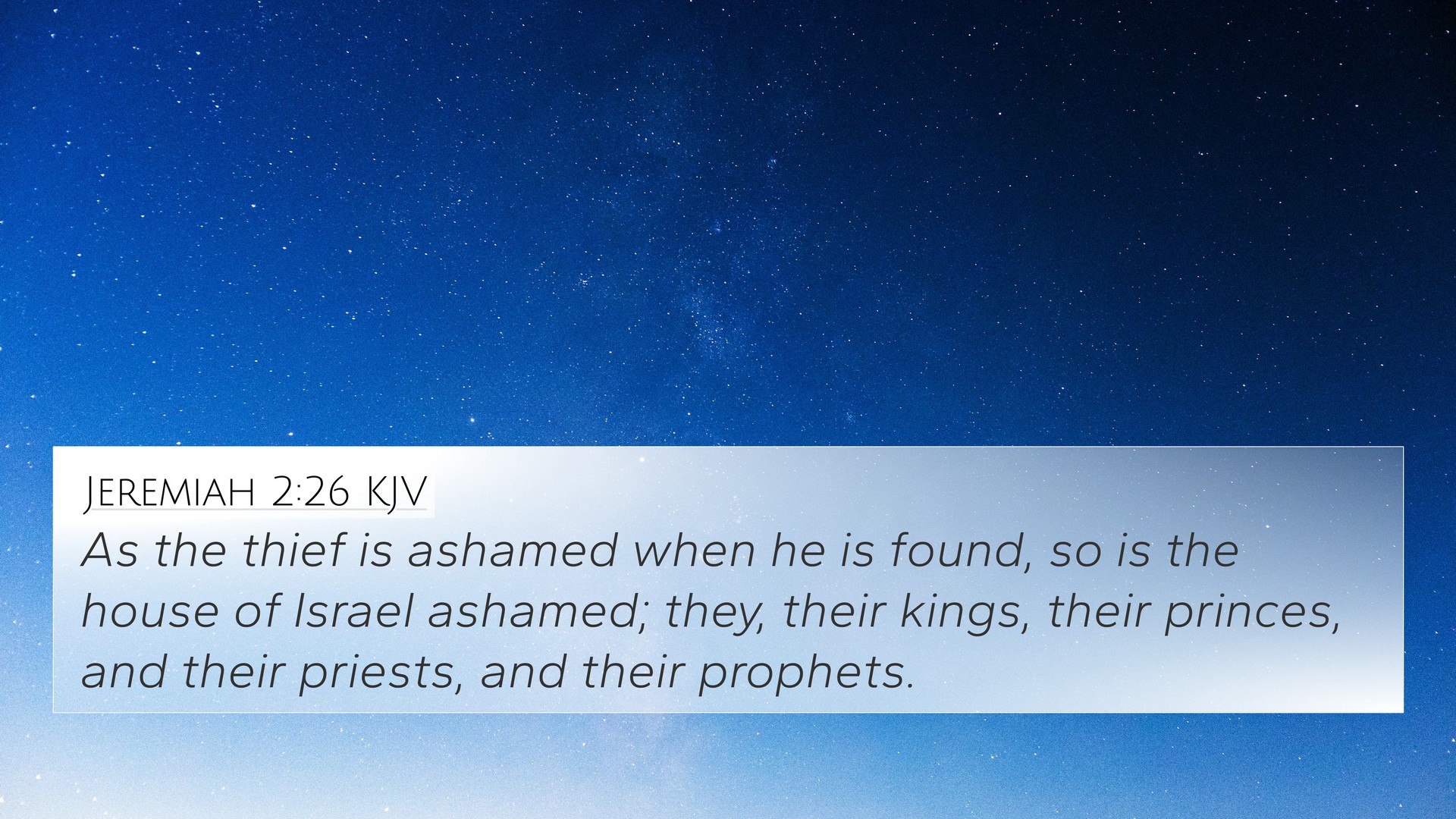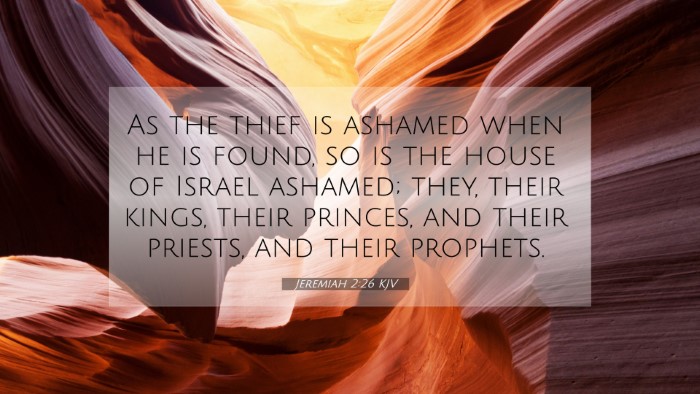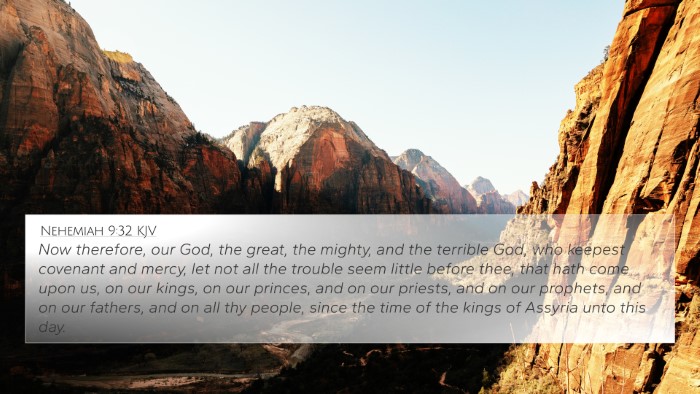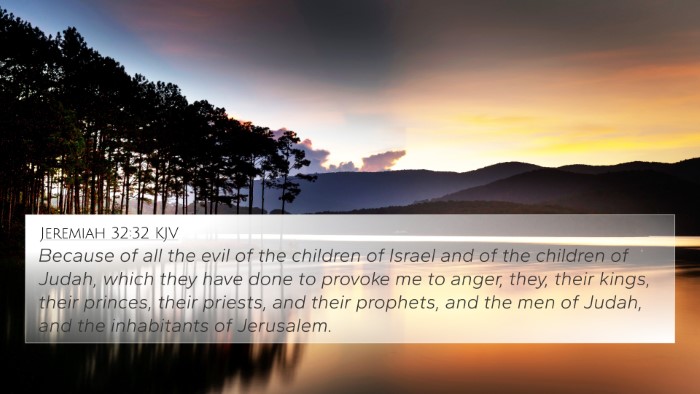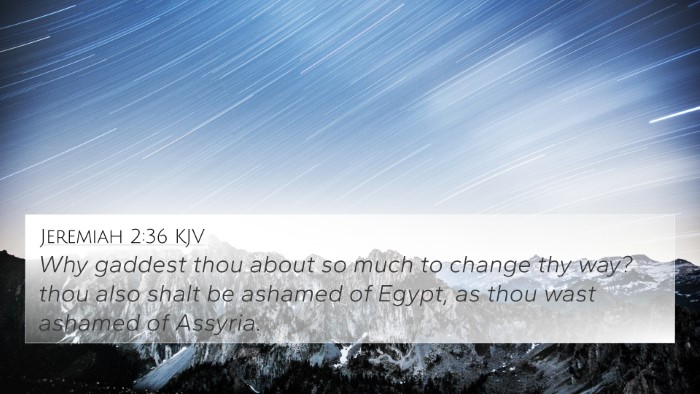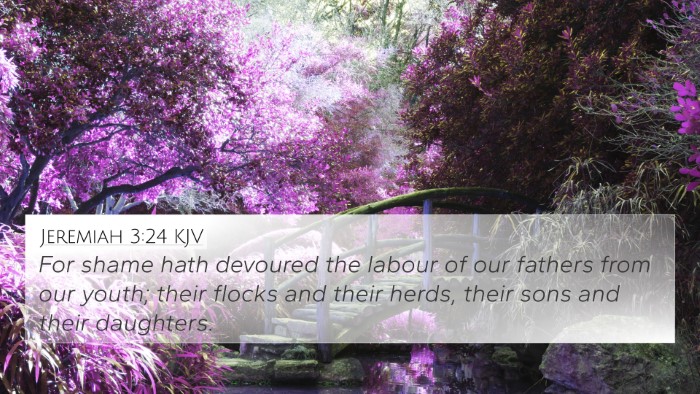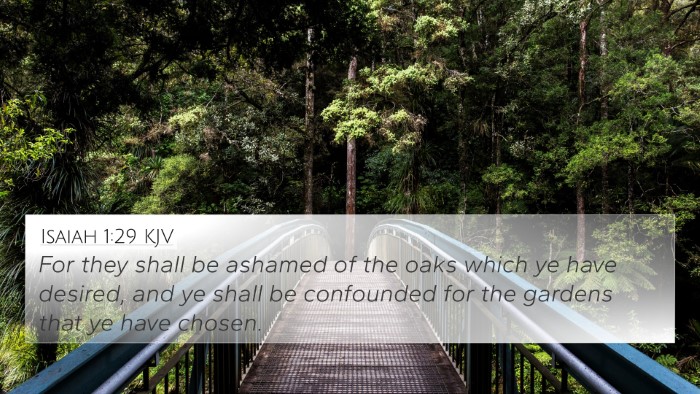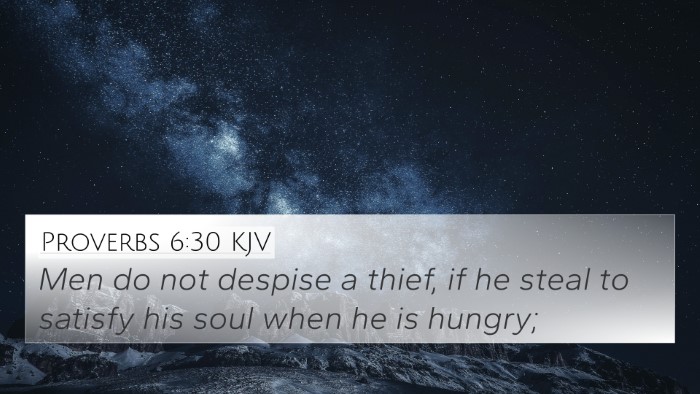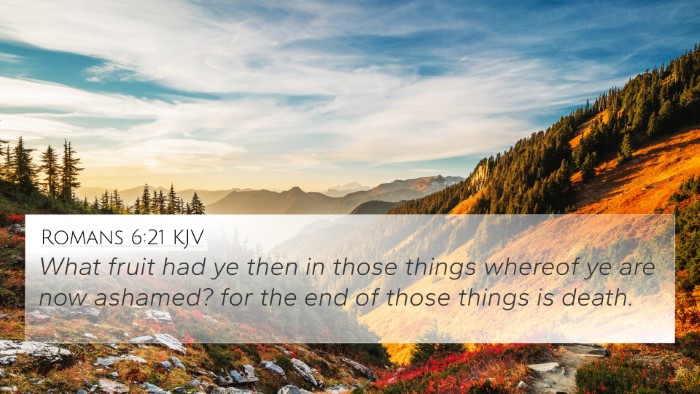Understanding Jeremiah 2:26
Jeremiah 2:26 states: "As the thief is ashamed when he is found, so is the house of Israel ashamed; they, their kings, their princes, and their priests, and their prophets," (KJV). This verse uses the metaphor of a thief caught in the act to illustrate the shame of Israel due to their idolatry and disobedience to God.
Summary of Meaning
This verse encapsulates the essence of Israel's failure by drawing a parallel between the embarrassment of a thief and the collective shame of the people of Israel. The context of this passage is significant, as it points towards Israel's unfaithfulness to God and their inclination towards false gods.
Insights from Public Domain Commentaries
Matthew Henry
Henry remarks on the shame that results from being caught in sin, emphasizing that just as a thief experiences heavy shame upon discovery, so does Israel feel the weight of their idolatry. He highlights that all classes of people, including leaders and priests, share in this humiliation. This illustrates a broader moral failing within the entire nation, as leaders should guide the people towards righteousness.
Albert Barnes
Barnes emphasizes the context of national apostasy, indicating that Israel’s shame is multifaceted, encompassing their disobedience and the betrayal of their God. He points out how the various figures of authority in Israel (kings, princes, priests, and prophets) have not only sinned but have led the people astray.
Adam Clarke
Clarke discusses the idea of shame in depth, noting that the term signifies a deep sense of guilt and loss of honor. He explains that this shame should lead to repentance and a return to God, further reflecting on the dire consequences of Israel's choices to worship idols instead of the true God.
Bible Cross-References
- Hosea 4:7: "As they were increased, so they sinned against me: therefore will I change their glory into shame."
- Ezekiel 18:30: "Therefore I will judge you, O house of Israel, every one according to his ways, saith the Lord GOD. Repent, and turn yourselves from all your offenses; so sin will not be your downfall."
- Isaiah 44:9: "They that make a graven image are all of them vanity; and their delectable things shall not profit; and they are their own witnesses; they see not, nor know; that they may be ashamed."
- Jeremiah 3:25: "We lie down in our shame, and our confusion covereth us: for we have sinned against the LORD our God, we and our fathers, since our youth even unto this day."
- Romans 6:21: "What fruit had ye then in those things whereof ye are now ashamed? for the end of those things is death."
- Daniel 9:7: "O Lord, righteousness belongeth unto thee, but unto us confusion of faces, as at this day, to the men of Judah, and to the inhabitants of Jerusalem, and unto all Israel, that are near, and that are far off, through all the countries whither thou hast driven them, because of their trespass that they have trespassed against thee."
- Revelation 3:18: "I counsel thee to buy of me gold tried in the fire, that thou mayest be rich; and white raiment, that thou mayest be clothed, and that the shame of thy nakedness do not appear; and anoint thine eyes with eyesalve, that thou mayest see."
Thematic Connections
The themes of shame, repentance, and return to God run throughout the Bible. Understanding these connections allows for a deeper analysis of not only Jeremiah 2:26 but also the overarching narrative of redemption present in Scripture.
Cross-Referencing Biblical Texts
This verse connects with multiple themes across both the Old and New Testaments. The idea of shame resulting from sin is prominent, and the call for repentance resonates through both prophetic and apostolic writings, offering a chance for restoration.
Examining Inter-Biblical Dialogue
By examining how different scriptures relate to Matthew Henry’s, Albert Barnes’s, and Adam Clarke’s insights, we can see a comprehensive view of human sinfulness and God’s enduring grace. Each scripture visited enriches our understanding of Jeremiah 2:26 through the lens of other biblical narratives.
Conclusion
The journey through Jeremiah 2:26 reminds us of the consequences of turning away from God and the universal call to repentance. The cross-references provided highlight that this call occurs throughout the Biblical text. Tools for Bible cross-referencing such as concordances, references, and study guides enhance our ability to navigate these connections effectively.
Tools for Study
If you are interested in diving deeper into cross-referencing Bible verses, consider utilizing a comprehensive Bible concordance or a designated Bible cross-reference guide. These resources aid in identifying connections between various teachings and themes.
